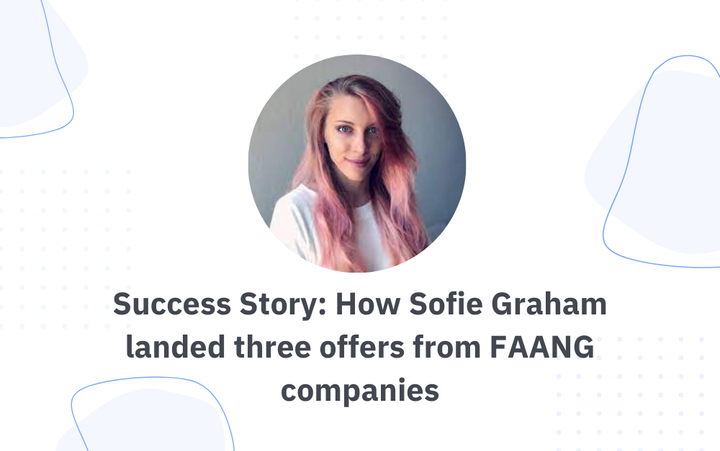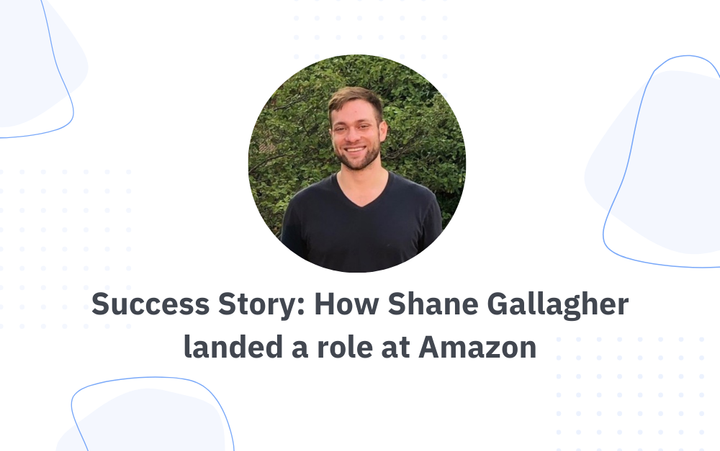Outcomes report: Fellow placements in the first half of 2025
Here's where our fellows have landed so far in 2025, and what we think it means for the tech job market.
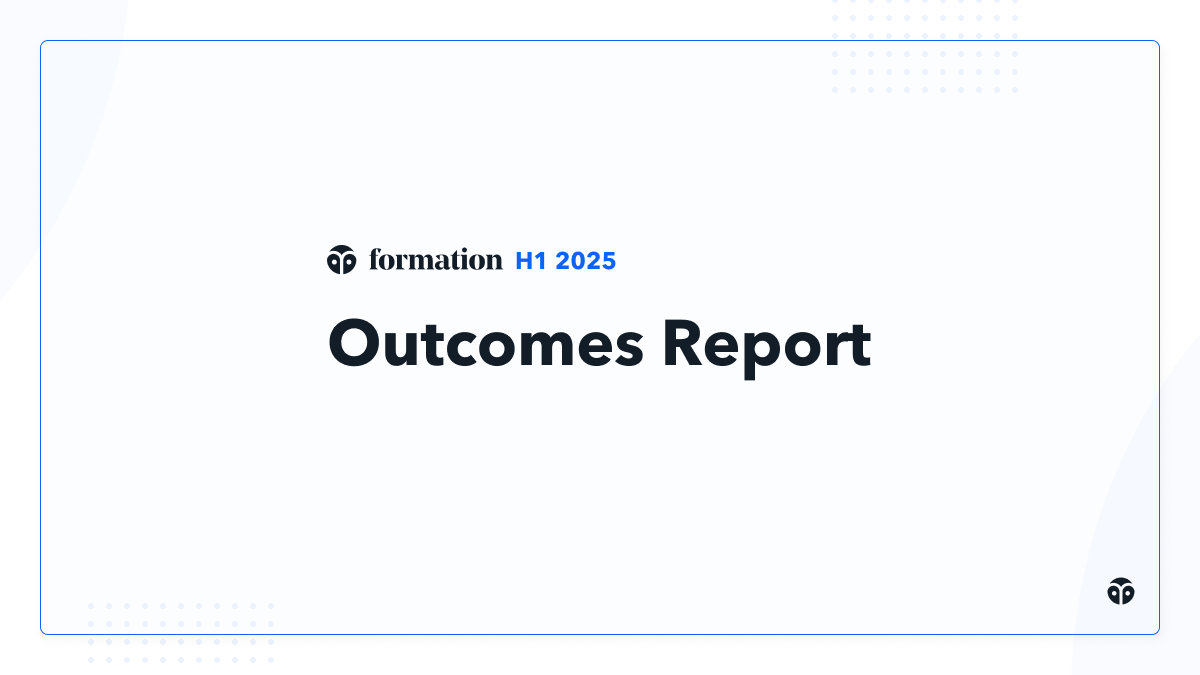
Here’s where our Fellows landed so far in 2025 and what it says about the evolving tech job market.
At Formation, we help software engineers land jobs by preparing them for the realities of today’s interviews. Our program focuses on real-world engineering skills and the kind of communication and problem-solving that top teams look for.
We’re on a mission to build a more diverse and skilled engineering workforce by supporting talent from all backgrounds. While the past two years presented major headwinds in the job market, we’re seeing clear signs of stabilization and a shift back to strategic hiring, especially for engineers with adaptability, growth potential, and AI fluency.
We’ve continually expanded our platform to reflect the realities of today’s interviews. That includes new focus areas like system design and working with large-scale codebases, plus the use of AI tooling to enhance the prep experience itself. Our latest placement data shows it’s working: Fellows are landing higher-comp roles across a broad range of companies.
We believe in sharing transparent data to help engineers make informed choices about their careers. If you’re considering joining the Fellowship, we hope these insights help you decide whether it’s the right next step for you. Our team is always happy to chat to see if it's a good fit. Everyone has different experiences and goals, so we look forward to talking to you about yours.
With that, here’s what we’re seeing in the first half of 2025*.
Fellowship data insights
Formation’s mission is to create the diverse engineering workforce we want to see in the world.
That means training engineers with existing full-time software engineering experience from diverse backgrounds and walks of life. We’re proud to support all kinds of engineers in landing their dream roles.
Here’s a glimpse at who landed outstanding new roles in the first half of the year.
- $81601.28 was the average increase in first-year total compensation for our Fellows. On average, Fellows were placed in jobs that paid significantly more than their previous roles. As we work with more senior engineers, a larger share of their compensation comes from equity. Our calculation only includes equity vested in the first year, so while many senior candidates are seeing sizable increases, this number doesn’t capture the full long-term upside.
- 74% of this year’s placements were at top-tier tech companies. We define top-tier companies as those that are innovative, engineering-driven organizations with competitive compensation. You can check out where our Fellows placed below. This is a randomized-order list of placements and their company, so you may see some companies appear more than once. We have a wide variety of Fellows with a range of experience, and this transparent list shows the full range of company placements.
- $231,650 was the average first-year total compensation for our Fellows. This includes base salary, equity, bonus, and signing packages. Many Fellows received offers with total compensation exceeding $250K. Experienced Fellows with 8+ YOE averaged $325,760.
- 45% of our Fellows placed identify as being from one or more underrepresented backgrounds in tech. This diversity enriches our community with a wide range of perspectives and experiences, reflecting our dedication to creating opportunities for historically marginalized groups in tech.
- 55% of placed Fellows had 3+ years of full-time software engineering work experience (YOE). Our Fellowship offers rigorous opportunities for current software engineers to uplevel their skills and gain the tools they need to land roles at top-tier tech companies.
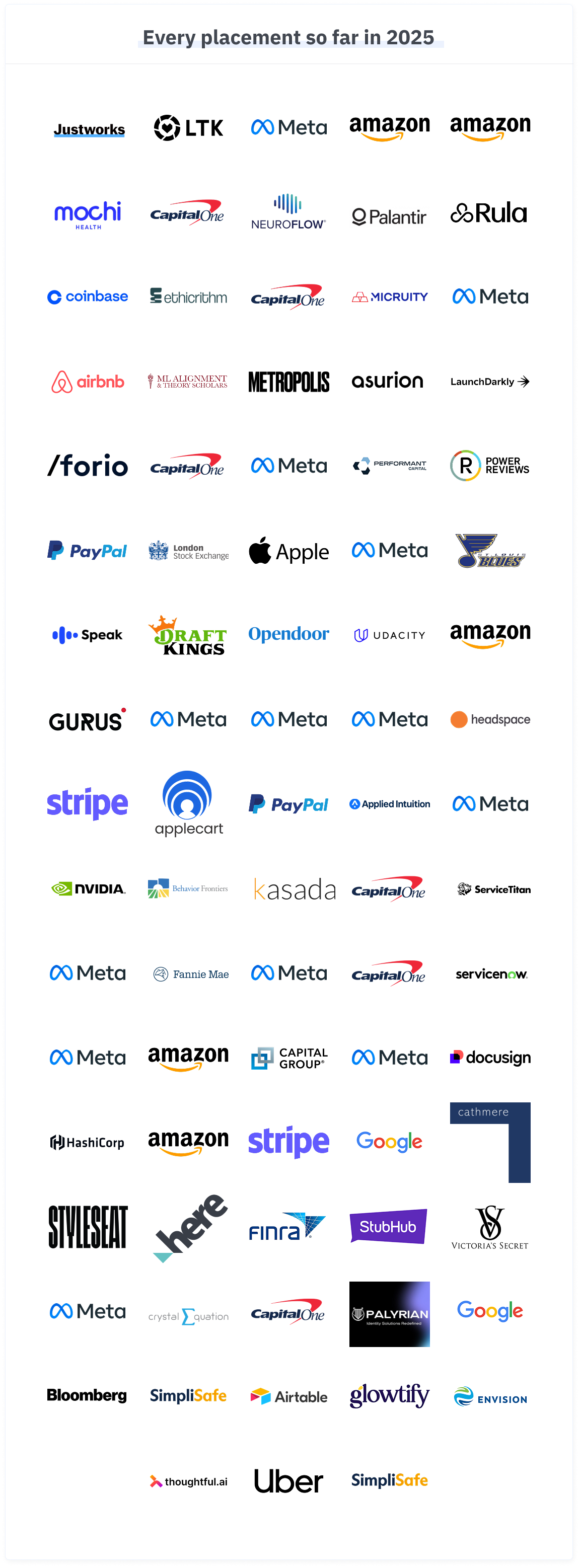
Fellows’ average first-year compensation after placement
One benefit of having a completely remote Fellowship is working with a diverse group of Fellows who live all over the country. Their compensation can vary depending on where a Fellow lives or accepts a role.
Below, we've averaged out all placed Fellows' first-year compensation packages based on their years of full-time software engineering experience. For this data, years of experience only includes full-time software engineering work experience, not internships, contract work, or other experience that might be considered in a job hunt. Aggregating compensation in averages and medians doesn’t tell the entire story, but helps preserve the anonymity of each Fellow.
After you apply, we’ll go a step further, showing anonymized outcomes from past Fellows with similar backgrounds to give you a more personalized view of potential results.
The first-year total compensation ranged from $60K to $516K.
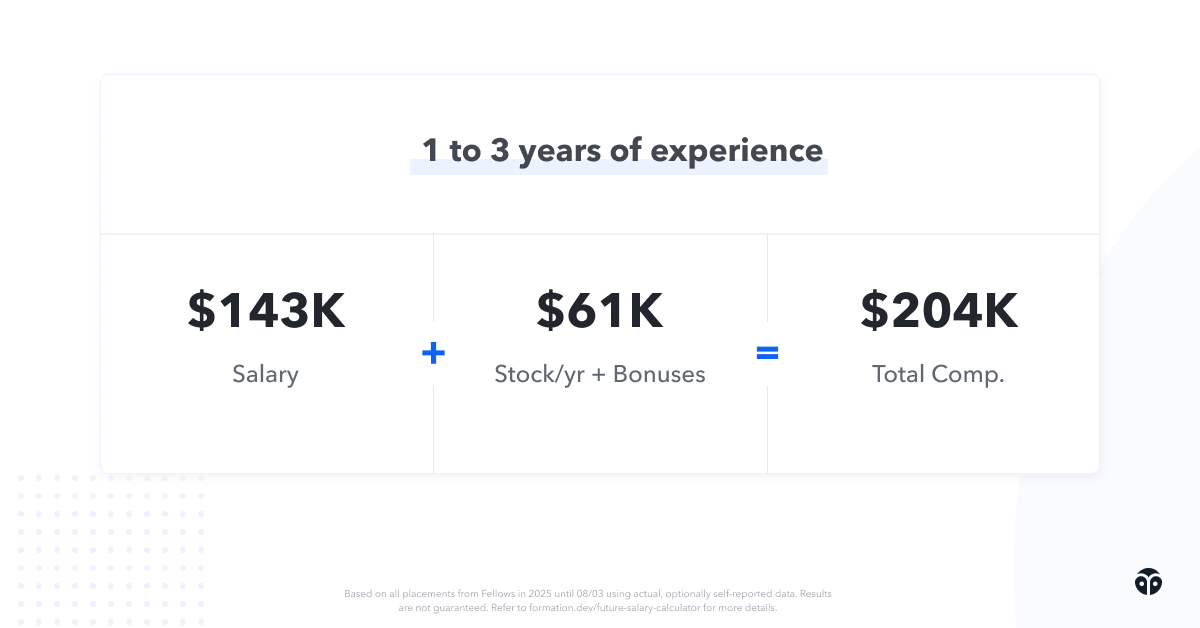
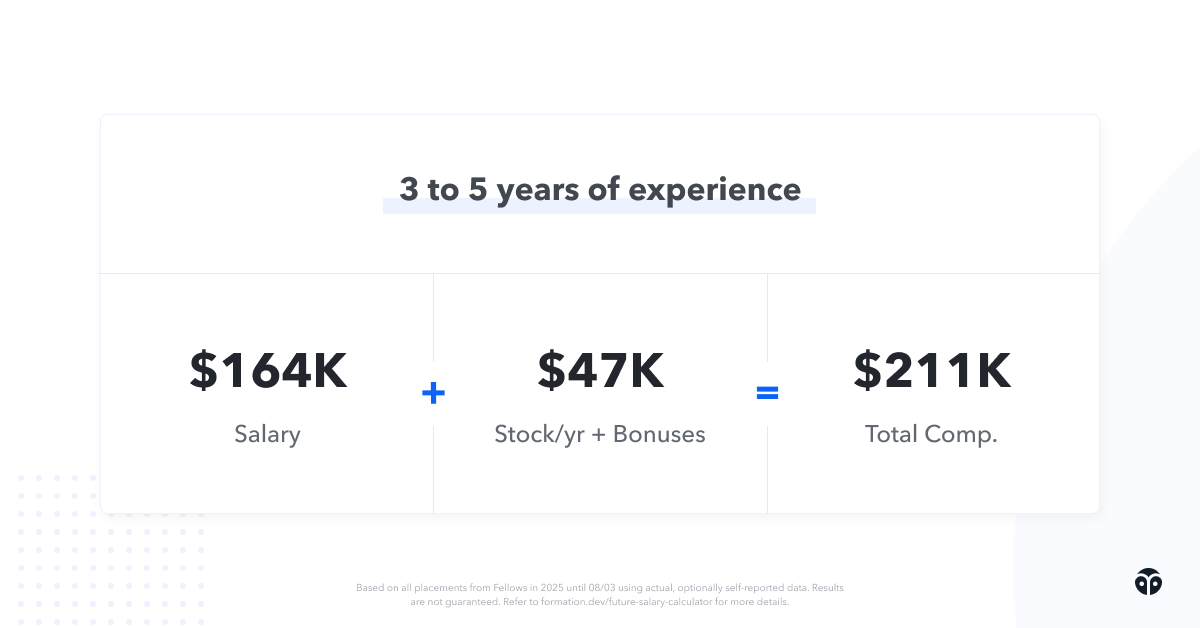
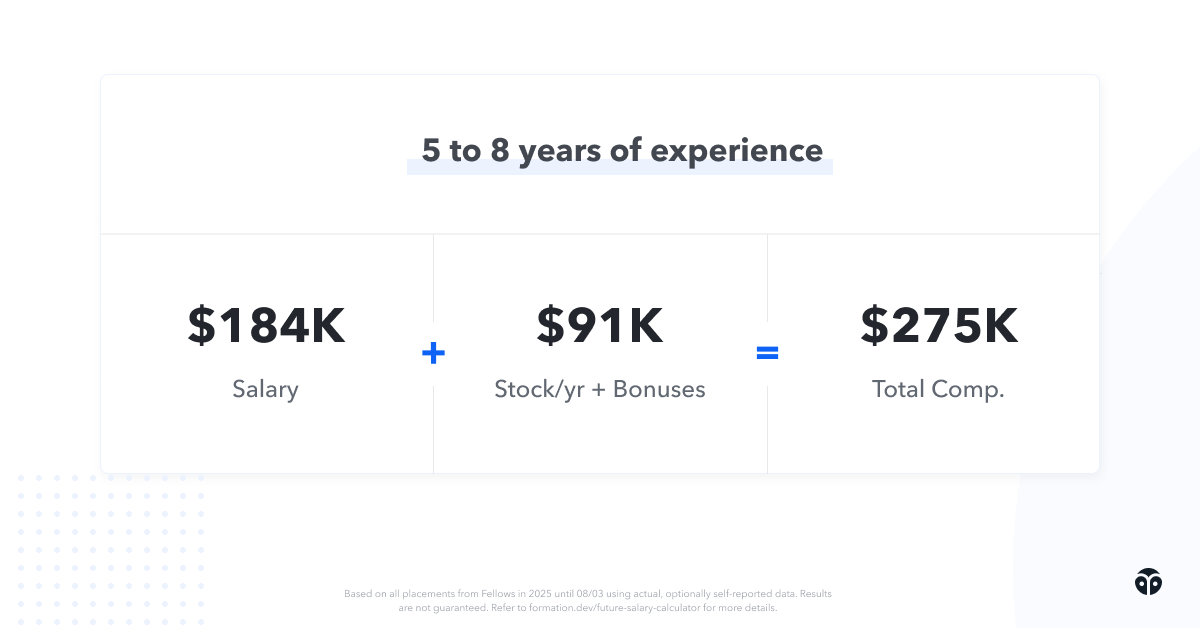
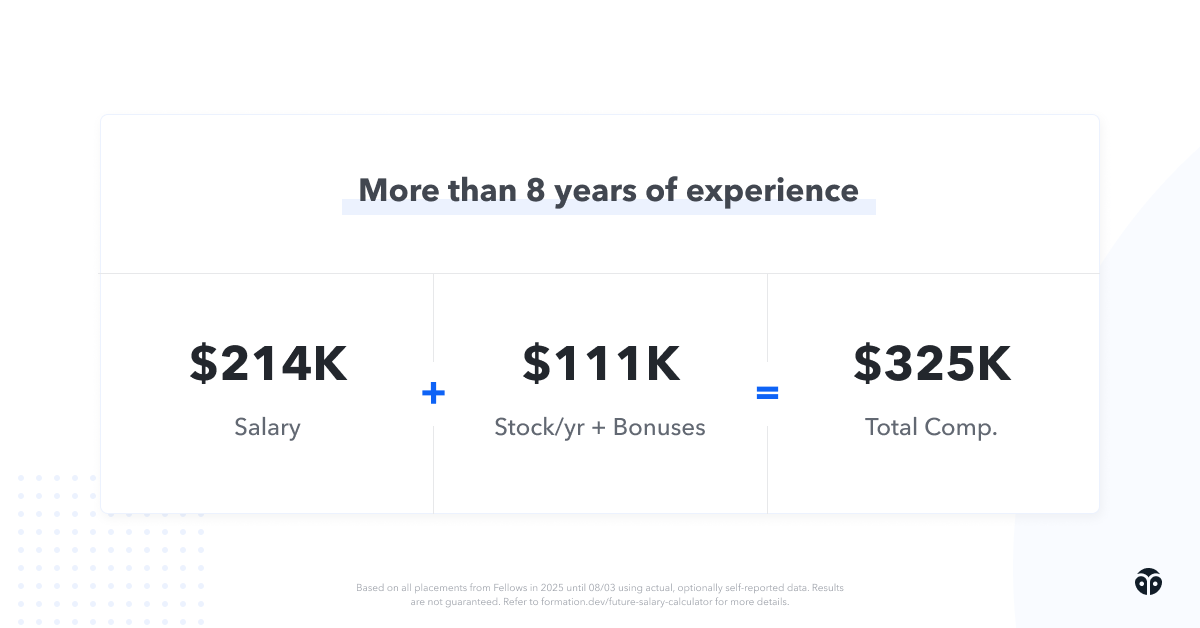
Tech industry trends
The first half of 2025 continued the tech market’s slow and steady return to growth. Taking key insights from our own Fellowship and combining them with the latest news in tech, here’s what we think are the important trends that emerged in the first half of 2025.
- Layoffs have stabilized after a seasonal spike. While there was a short-term surge in Q1, largely driven by macroeconomic shifts, layoff volume has since normalized. Year-over-year, the number of layoffs is roughly flat and well below 2023 levels. That signals greater stability in workforce planning, even if companies remain cautious about headcount expansion.
- Software engineering roles are available, but evolving. Full-stack and backend engineering continue to dominate open roles, but companies are no longer looking just for deep specialists. Instead, they’re favoring engineers who are adaptable, self-directed, and able to move across the stack. The exception: AI. For AI roles, domain depth is increasingly well-compensated.
- AI remains the fastest-growing opportunity in tech. Job postings related to generative AI are up nearly 4x year-over-year. Engineers who can show real AI literacy are being hired faster and earning more, even in roles that aren’t AI-specific. ML engineering, prompt engineering, and LLM infrastructure roles are seeing especially strong demand.
- Most new roles are hybrid or in-office. Only 29.5% of roles placed through Formation in H1 2025 were fully remote. While remote work still exists, especially at larger non-FAANG companies, in-person and hybrid work has returned as the default for most engineering orgs. Candidates open to flexible or in-office arrangements had access to more opportunities.
- The funding engine is revving up again. IPO activity is picking up after years of stagnation, and that’s starting to unlock a fresh wave of reinvestment, especially in AI, infrastructure, and productivity tooling. Crucially, many of the new companies attracting capital are showing strong early revenue traction, not just hype.
Get holistic interview prep with Formation
Despite the challenging economy, we've been able to help our Fellows land life-changing roles. Formation’s Mentors come from some of the best tech companies in the world, and the personalized career coaching and supportive community make for a great support system.
If you’re having trouble navigating your job search on your own, apply here and get unconditional support from a team of engineering mentors, technical recruiters, career coaches, and more.
*These numbers are accurate as of our last update on August 3, 2025, and are based on Fellows who submitted placement data in 2025 up to June 30, 2025. See the full details on how our numbers are calculated and other important disclosures about outcomes here: https://formation.dev/terms/#outcomes

